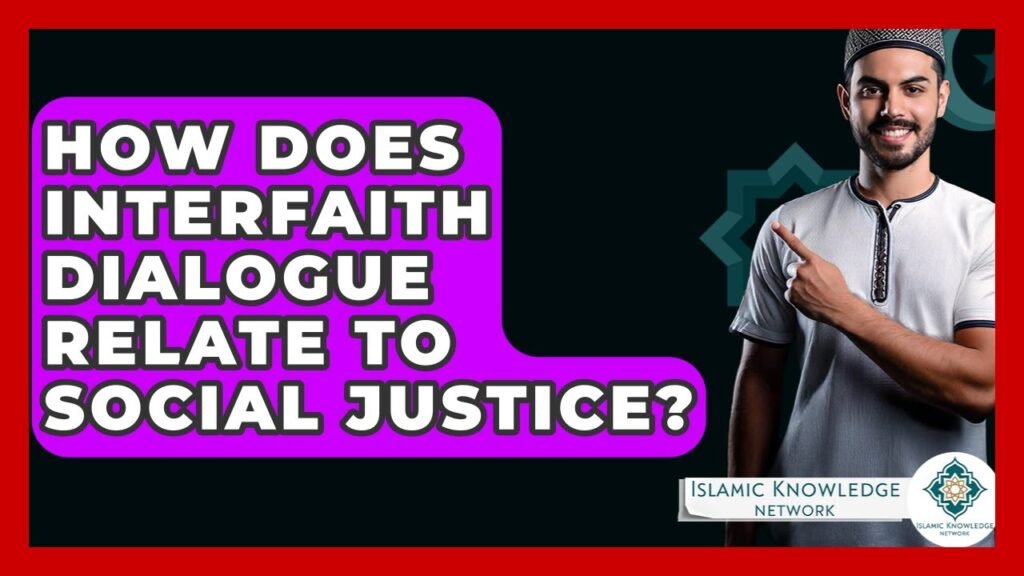Disclaimer:
The content published on this website is provided for general informational purposes only. Articles are generated with the assistance of artificial intelligence and are reviewed periodically; however, accuracy cannot be guaranteed in all cases. Readers are encouraged to verify important information from reliable and authoritative sources before relying on it. The website does not intend to mislead, and any errors found will be corrected when identified.
In an increasingly interconnected world, the importance of fostering understanding and cooperation among different faiths is more crucial than ever. Interfaith dialogue serves as a powerful tool in bridging divides, fostering a culture of respect, and promoting social justice. By creating an open platform for discussion, individuals from diverse religious backgrounds can unite their voices to address pressing societal issues, paving the way for collective action aimed at achieving equity and justice for all. In this context, the Islamic Knowledge Network seeks to explore the intricate relationship between interfaith dialogue and social justice, shedding light on how collaborative efforts can lead to meaningful change.
At airlinkhajjandumrah.com, we not only delve into significant themes such as interfaith dialogue but also keep you updated on all Hajj and Umrah news. Our blog serves as a resource for pilgrims, offering valuable insights and information to enhance your spiritual journey. By understanding the importance of social justice through interfaith interactions, we can encourage a more inclusive approach to religious practices, emphasizing compassion and solidarity. Join us in exploring how these dialogues can inspire faith communities to work together, create lasting impact, and ultimately contribute to a more just society.
How Does Interfaith Dialogue Promote Social Justice?
Interfaith dialogue serves as a vital tool for promoting social justice by fostering mutual understanding and respect among diverse religious communities. This type of dialogue creates a platform where individuals can express their beliefs while learning from others, breaking down barriers that often lead to discrimination and prejudice. When people engage with one another, they develop empathy and a sense of shared humanity, which is crucial for advocating social justice initiatives.
Additionally, interfaith dialogue encourages collaboration on social issues that affect marginalized communities. By working together, different faith groups can address challenges such as poverty, inequality, and systemic injustice. This united front amplifies their voices, making it easier to advocate for legislative changes and social programs aimed at uplifting the disadvantaged. Through these cooperative efforts, participants not only promote justice but also strengthen community bonds.
At Airlink Hajj and Umrah, we understand that the spiritual journeys of Hajj and Umrah can spur meaningful interfaith conversations. Our blog offers ongoing updates about these sacred pilgrimages, highlighting how they can serve as catalysts for dialogue and social justice at both local and global levels. Engage with our content to learn more about how faith can inspire positive change in society.
FAQ on “How Does Interfaith Dialogue Promote Social Justice?”
FAQs: How Does Interfaith Dialogue Promote Social Justice?
1. What is interfaith dialogue?
Interfaith dialogue refers to the open and respectful exchange of ideas, beliefs, and practices between individuals from different religious traditions. It aims to foster understanding, respect, and collaboration among diverse faith communities.
2. How does interfaith dialogue contribute to social justice?
Interfaith dialogue promotes social justice by encouraging cooperation among different faith groups to address social issues, such as poverty, discrimination, and inequality. It fosters a sense of shared responsibility and collective action towards achieving justice for marginalized communities.
3. Can interfaith dialogue help resolve conflicts?
Yes, interfaith dialogue can play a crucial role in conflict resolution by building trust and understanding between conflicting parties. It creates a platform for discussion, allowing participants to address grievances and find common ground, ultimately leading to peaceful coexistence.
4. What are some successful examples of interfaith dialogue initiatives?
Successful examples include community service projects undertaken by interfaith groups, collaborative advocacy for human rights legislation, and forums that bring together leaders from various faiths to address pressing social issues, such as climate change and immigration.
5. How can individuals get involved in interfaith dialogue efforts?
Individuals can engage by participating in local interfaith councils, attending community workshops, joining discussions organized by faith communities, or volunteering for joint service projects that address social justice issues. Building personal relationships with those from different faith backgrounds can also foster meaningful dialogue.
Mushu, an experienced Saudi Arabia traveler and writer, shares insightful tips and spiritual reflections to enhance Hajj and Umrah journeys for fellow pilgrims. He has been to Makkah and Madina from 2016 to 2023 many times and his posts will reflect this.







